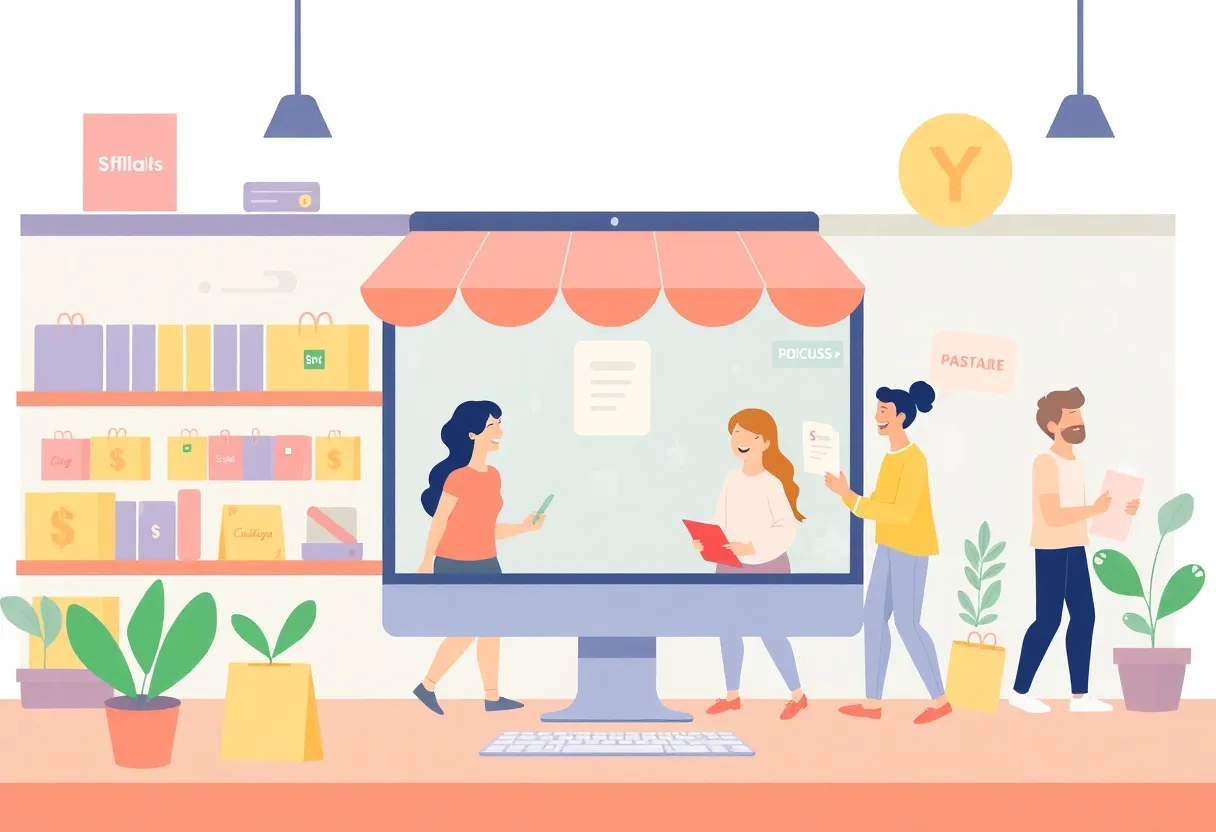

Small retailers are turning to affiliate marketing and cashback programs as effective strategies for increasing sales.
Article Sponsored by:
Real Internet Sales is a digital marketing agency located in Columbia, South Carolina. We specialize in website design and development, SEO, social media management, online advertising, AI integration, and workflow automation. Our services also include affiliate marketing and digital strategy.
Real Internet Sales also offer specialized programming for real estate firms, using IDX and RETS feeds to automatically populate MLS properties on their websites for improved property listings and sales. We also work with clients in the restaurant, tourism, and e-commerce industries to enhance their digital presence and streamline operations.
As small retailers face rising advertising costs and competition from larger companies, they are discovering the benefits of affiliate marketing and cashback programs. These strategies provide cost-effective solutions, enabling them to boost sales while managing expenses. Consumers are increasingly interested in cashback opportunities, making these marketing methods essential for small businesses aiming to thrive in a challenging ecommerce landscape.
As many small retailers continue to navigate through a whirlwind of challenges, they’re discovering a silver lining. With advertising costs climbing steadily, these smaller players are turning to affiliate marketing and cashback programs to boost their sales without breaking the bank.
It’s no secret that small businesses often struggle to compete with larger companies that have substantial marketing budgets. Everyone has noticed those big names dominating online ads and social media, leaving smaller retailers feeling a bit lost in the crowd. And with advertising costs on major platforms soaring, it’s becoming increasingly tough for small e-commerce businesses to keep their heads above water.
In the face of these challenges, small brands are finding refuge in affiliate marketing. It’s a cost-effective way to partner with website publishers who share their products. Retailers only pay commissions after a sale is made, making this approach a low-risk and potentially high-reward strategy. This means that instead of spending huge sums upfront on ads, they can incentivize others to promote their brand and only pay when those promotions result in sales.
In addition to affiliate marketing, cashback rewards programs are gaining traction. Services like Rakuten, PayPal Honey, and Capital One Shopping are enticing customers by offering cashback on their purchases. These programs have become a favorite among millions of online shoppers, eager to save a little on their purchases. For small retailers, tapping into these performance-based marketing channels is a game-changer that does not require them to overspend.
The significance of cashback isn’t merely anecdotal. A survey conducted by Wildfire in May 2024 showed that a whopping 77% of consumers are increasingly interested in earning cashback when shopping. Even more impressive is that 72% of consumers are leaning toward using online coupons and discounts more than ever before. Additionally, nearly one in three shoppers (27%) stated they have been using cashback browser extensions more frequently this year!
Moreover, around 70% of consumers who’ve installed a cashback browser extension use it often. This means that these cashback tools aren’t just a fleeting trend; they are becoming embedded in how consumers shop online, enhancing their confidence and ultimately improving conversion rates for small to mid-sized retailers.
Despite all the benefits, small retailers also harbor concerns. They worry that offering cashback could affect their brand value and disrupt pricing control. However, many businesses already equipped with affiliate programs are familiar with the idea of paying commission rates, which aligns with their margins. The cashback rewards primarily come from the commissions earned by publishers on completed sales, which helps to alleviate these worries.
With the ecommerce landscape continuously changing, it’s become essential for smaller retailers to leverage every advantage they can find to compete effectively. The recent ruling by the ICO designating cashback tracking cookies as “strictly necessary” simplifies compliance for affiliate marketers. Now, cashback sites can track purchasing behaviors without needing explicit user consent, which enhances the overall user experience.
The evolution of digital payments and marketing strategies is not confined to one region. In India, for instance, the use of UPI transactions surged throughout 2024, significantly contributing to ecommerce growth. Consumers are becoming increasingly engaged with promotional tools, which shows the growing appetite for cashback incentives across the globe.
A recent partnership between Wildfire Systems and Citi to introduce the Citi Shop browser extension marks another exciting development. This extension aims to ease the search for online bargains, specifically catering to time-strapped consumers. As small retailers embrace these tools, the future looks brighter, filled with hope and possibilities.
In summary, as advertising costs rise, small retailers are responding by creatively using affiliate marketing and cashback programs. Consumer trends indicate that there is a promising opportunity for growth, engagement, and effective competition against bigger businesses – while leaving more satisfied shoppers exploring the online marketplace.
How to Use Influencer Partnerships to Elevate Your Brand’s Online Presence

7001 St Andrews Rd #329 ,
Columbia, SC 29212,
United States
Phone: (+1) 803 708 5514
News Summary On April 29, President Trump announced that Selfridge Air National Guard Base in…
News Summary May is Small Business Month, highlighting the vital role of independent beer and…
News Summary DTE Energy and Consumers Energy have filed a lawsuit against Toshiba America Energy…
News Summary In a disturbing incident, a 60-year-old man was kidnapped in Paris, linked to…
News Summary A recall has been issued for two brands of tomatoes sold at Gordon…
News Summary For the seventh consecutive day, Newark Liberty International Airport is experiencing significant flight…